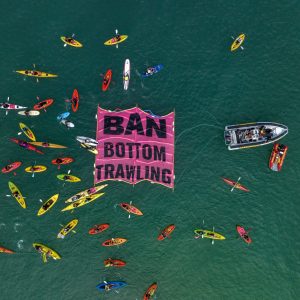Employing the right techniques in how we fish is the first step to reducing our impact on our fishery and the marine environment.
All users of the resource, commercial, recreational and customary must fish in a responsible manner.
The purpose of selective techniques is to avoid catching fish you don’t want e.g. undersized specimens. This avoids the possibility of harm to the fish.
There are several techniques that you can use to improve your recreational fishing success while reducing your impact on the fishery, these include:
- Use suitable lures, like softbaits or slow jigs.
- Use big baits with big hooks, preferably circle hooks.

Lure Fishing
Modern lures such as softbaits and slow jigs not only catch fish of legal size more often, they are far less likely to gut hook fish.
Using large hooks with large baits is another effective way of avoiding the capture of undersized fish. Large circle hooks and J hooks (7/0 or larger) with a corresponding large sized bait help target the larger sized fish.
Big baits – big hooks
If you are fishing with large hooks and losing lots of bait to the small ones without any larger fish to show for your efforts, don’t change to smaller hooks. If the large fish aren’t there it’s better to change location and see if you can find the sort of habitat holding larger fish.
Infection is another killer. Infection occurs after the protective mucus or slime is removed from the fish’s skin. You may see the fish swim away strongly after release however, a loss of slime from handling can result in death days later.
So, avoiding the handling of undersized fish reduces the risk of killing them and is the first step to a healthier fishery. This is easily accomplished by using techniques that are better at selectively targeting the legal sized fish.
Think about how you fish – can you adopt some of these techniques to help our fishery?
For more information, go to www.fishcare.org.nz.





